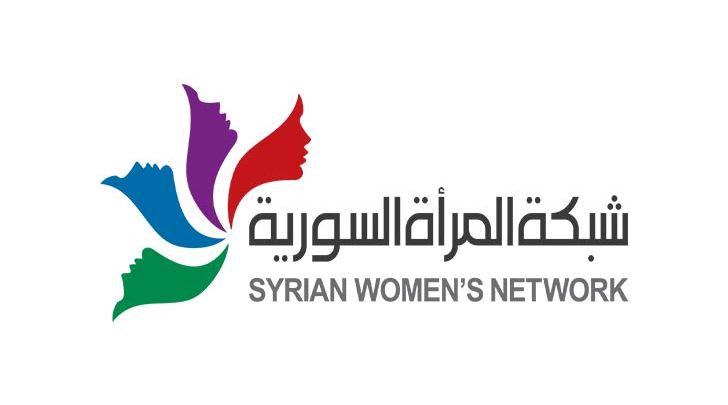Salma Aldimashki
There is no civil marriage in Syria, where the Law of Personal Status is based on the Islamic religion and the seven courts are: The Sharia Courts, The Doctrine Dorzi Court, The Orthodox Court, The Catholic Court, The Syriac Court, The Anglican Court and the Court of Musaweiya Sect.
As for the ecclesiastical law, it deals in detail with the mixed marriage and differentiates between marriages of a Christian & non-Christian parties and the two Christian parties who belong to the different Christian doctrines. However, it is still is not preferable to marry to a non-Christian. Most of the Christian courts allow for marriage between two Christian parties who belong to the different Christian doctrines.
As for marriage between Christians and non-Christians, if both parties wanted marriage according to the Christian ceremonies, the church would give the choice to the non-Christian who s/he wants to marry to the Christian party for either to proselytize or to maintain his/her religion. In this case, the non-Christian party is only requested to pledge towards raising children according to the Christianity instructions without forcing the non-Christian party on Baptism.
On the other hand, in the Islamic Law of Personal Status every Muslim has the right to marry to whoever he wants where she can maintain her religion. However, whoever he would like to marry to a muslin girl from non-Muslims, the Christian has to proclaim Islam, and the Dorzi has to change his doctrine into Sunnite since one of the requirements to complete marriage is a civil marriage document regarding religion. In this document the religion and the sect are mentioned clearly but this is not applicable on the rest of the Islamic sects like the Alawi, the Ismaeli and the others.
Thus, all mixed marriages were necessarily based on the Sharia courts and the husband changed his religion or doctrine.
However, even though the mixed marriage in Syria is agreed on by Sharia courts, it is still refused socially amongst the thirteen sects and religions found in Syria.
Recently, and despite the presence of the many cases especially amongst the educated, the rich and wealthy people, the mainstreaming tradition hasn’t accepted this kind of marriage, and eventually children born in the mixed marriage receive the consequences of this type of marriage.
Most often the wife takes this burden, a lot of women have been killed by their families because they married to other than their sects, there are some cases in which the wife was killed after years of marriage and delivering children just to lift the veil of shame. This crime is considered an honour crime which has alleviated reasons in the Syrian Law.
I recall a case for a Christian girl marrying to a muslin guy despite remaining Christian and passing over 25 years on their marriage. However, her family didn’t forgive that nor accept her.
Also, women Dorzi marriage to non-Dorzi is considered a departure from the sect without a return. A lot of Dorzi women have been killed as a result to their choice of marriage. Even the male Dorzi marriage to a non-Dorzi is not accepted in the Dorzi sect. Otherwise, he will be considered an outsider to the sect and will be disallowed to pray on him when he dies or buries in the sect related cemeteries.
Furthermore, one of the most common problems for the mixed marriage is death especially in the current circumstances that Syria is going through. Recently, an Ismaeli woman, who is married to a Dorzi husband, died in her place of residence in Jaramana. Her family were disallowed to bury her body in the cemeteries of Jaramana since there are no available public cemeteries. In addition, she was disallowed to be buried in the cemetery of her husband the thing that made them move her body to the Salamiah region in spite of the high expenses to moving the body during the currently lived tough situation just to find a place for grave that hosts her.
As we have already said, children of mixed marriages are the ones who receive the consequences and most often don’t know about that nor feel it until they reach to the age of marriage.
One of the Sunnite ladies got married to a Dorzi guy who then changed his doctrine. Later on, she moved with him to live in Alsweidaa Province with his family who loved her. She got well on living with them to the extent that she mastered the local dialect and adopted same ceremonies commonly practiced in the province. However, when her daughters reached the age of marriage, she was surprised that a lot of Dorzi guys were afraid of getting married to her them as they were Sunnite following their father’s doctrine who has already changed his faith. Thus, any candidate from this sect has to change his faith, too. As for the surrounding of this family, her daughters are absolutely refused since the mother brought the disgrace to the family when she got married to a foreigner and lived with his parents.
Even though the Sunnite sect is the most populated in Syria, and is supposed to be welcoming all of those come to join it from the other sects. However, it only tolerates marriages to the Shiite sect while the rest of the mystical sects like Dorzi, Ismaeli and Awawi, most often were not accepted especially in the extremist areas. In these areas the girl is fought once engaged to a fiancé from another sect. In one case in which a girl got married to a Dorzi guy who changed his faith accordingly in order to facilitate marriage to her. However, even after passing 20 years on their marriage, her family didn’t recognize or accept their marriage and didn’t recognize on her children.
The inheritance is also one of the most problematic issues resulted from mixed marriage .The party who changes his/her religion or faith on purpose of marriage to a Muslim loses the right of inheritance from his father. In the same way, the girl who marries to a party whose faith differ from her religion or doctrine loses her right of inheritance from her father. Likewise, the Christian, who marries to a Muslim, maintains her religion and doesn’t have the right to take the inheritance from her husband unless she changes her religion to Islam. This is also applicable on the Dorzi who marries to a Muslim where she doesn’t have the right to inherit him unless she changes her doctrine to the Sunnite one.
By now, and after passing over 6 years on the Syrian Peoples’ Revolution that aimed for freedom, Syrian women are in need for several revolutions in order to reach their rights of selecting whoever they want for marriage, without any discriminative hindrances in the law. For their children, to get their mothers’ nationality when marrying to the non-Syrian.
Exclusive to the SWN






